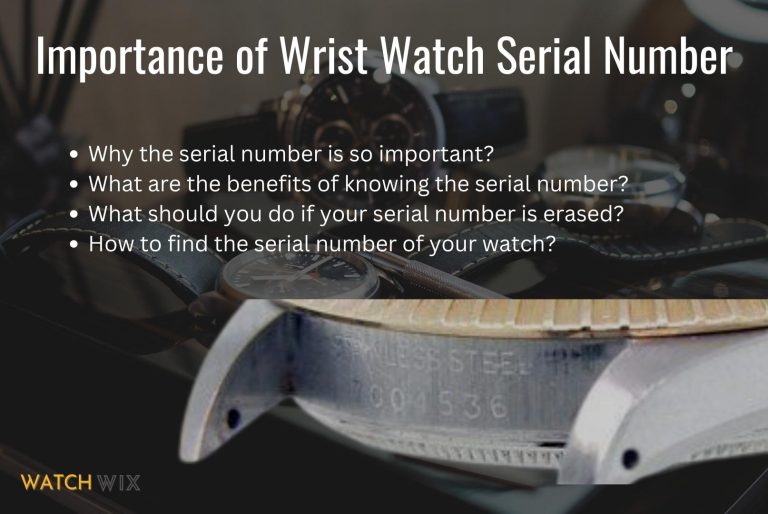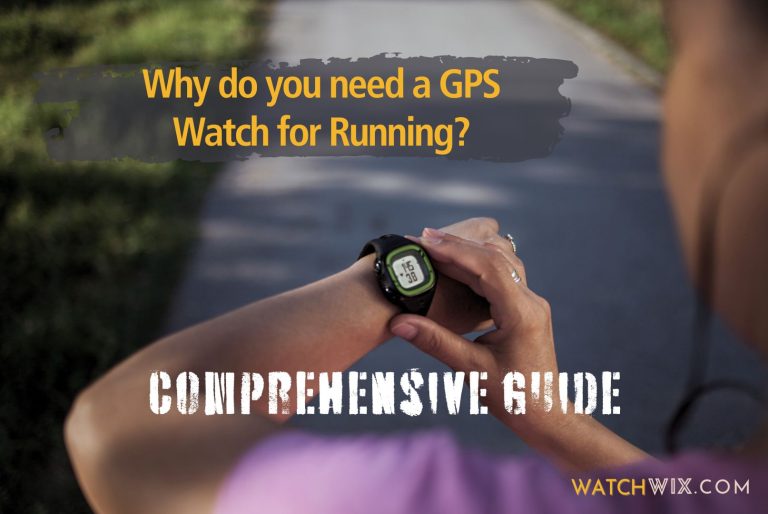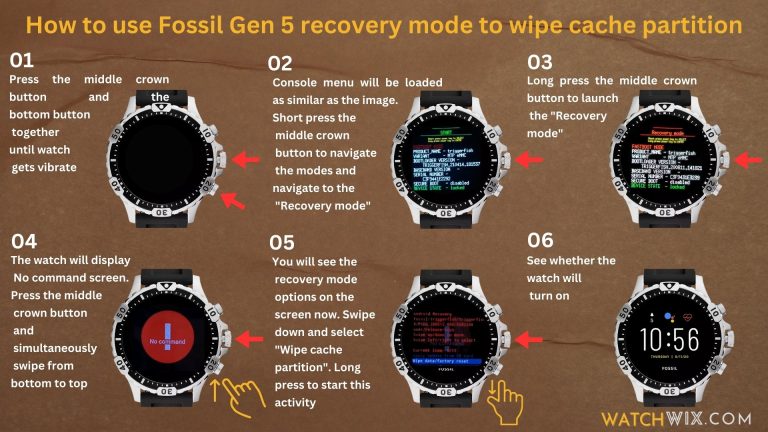GPS Watch, Smartwatch, Fitness Tracker: Detail Comparison
You may be a dedicated athlete seeking precision in your training, or a tech enthusiast looking for a multi-functional timepiece, or someone focused on overall well-being and daily activity. The decision to invest in a GPS watch, smartwatch, or fitness tracker involves careful consideration. This detailed comparison article delves into the explanation, functionality, distinct advantages, and trade-offs of each category, helping you to make an informed choice.
What is a GPS Watch
A GPS watch, or GPS running watch, is a specialized wearable device designed for athletes and fitness enthusiasts, especially runners. Its primary function is to accurately track outdoor activities using GPS technology.
GPS watches provide features such as distance tracking, pace calculation, and route mapping. They often include additional sensors for heart rate monitoring and may offer advanced running metrics like cadence and stride length. These watches are dedicated to fitness tracking and have a strong focus on performance data for activities like running, cycling, and swimming.
What is a Smartwatch
A smartwatch is a versatile wearable device that combines the features of a traditional watch with the capabilities of a smartphone. It can display time, offer notifications for calls, texts, and apps, and provide access to various apps and functions.
Smartwatches often have touchscreens, and voice assistants, and can run third-party applications. While they may include basic fitness tracking features, their primary purpose extends beyond fitness to encompass communication, entertainment, and productivity. They can pair with smartphones to offer a broader range of functions.
What is a Fitness Tracker
A fitness tracker, or activity tracker, is a wearable device primarily designed to monitor and record daily physical activity and basic health metrics. These devices are generally compact and lightweight and can track steps, distance, calories burned, and sleep patterns.
Many fitness trackers also include heart rate monitoring, and some models are equipped with GPS for outdoor activity tracking. They are intended for individuals looking to maintain a general level of fitness and track daily activity, making them more focused on lifestyle and health monitoring.
Comparison of GPS Watch, Smartwatch, and Fitness Tracker
| Feature | GPS Watch | Smartwatch | Fitness Tracker |
|---|---|---|---|
| GPS tracking | Yes | Some models | No |
| Heart rate monitoring | Yes | Yes | Some models |
| Elevation tracking | Yes | Some models | No |
| Pace tracking | Yes | Some models | No |
| Durability | High | Medium | Low |
| Smartwatch features | Few | Many | Few |
| Price | High | Medium | Low |
| Other features | May include compass, altimeter, thermometer, and built-in maps | May include music playback, mobile payments, and app store access | May include sleep tracking, smartphone notifications, and hydration tracking |
1. Purpose
- GPS Watch: Specialized for accurate outdoor activity tracking, with a focus on runners and athletes.
- Smartwatch: Versatile device that combines timekeeping, notifications, apps, and various functions beyond fitness.
- Fitness Tracker: Primarily designed for monitoring daily activity, sleep, and basic health metrics.
2. Fitness Tracking
- GPS Watch: Provides in-depth fitness data, including distance, pace, heart rate, and advanced running metrics.
- Smartwatch: Offers basic fitness tracking but often lacks advanced performance metrics.
- Fitness Tracker: Primarily focused on tracking steps, calories, and basic health stats.
3. Connectivity
- GPS Watch: May have limited smartphone connectivity for notifications and syncing.
- Smartwatch: Offers extensive smartphone integration for calls, texts, apps, and more.
- Fitness Tracker: Typically provides basic smartphone connectivity.
4. Design and Display:
- GPS Watch: Rugged design, often with buttons, designed for outdoor use.
- Smartwatch: Stylish and versatile, with touchscreen displays.
- Fitness Tracker: Compact and lightweight with simpler displays.
5. Battery Life:
- GPS Watch: Varies, but some models offer extended battery life for outdoor activities.
- Smartwatch: Typically shorter battery life, often requiring daily charging.
- Fitness Tracker: Longer battery life than smartwatches, often lasting several days.
6. Cost:
- GPS Watch: Moderate to high cost, depending on features and brand.
- Smartwatch: Broad price range, from budget to premium models.
- Fitness Tracker: Generally more affordable compared to GPS watches and smartwatches.
Best GPS Running Watches Below $400
The following article contains the low-priced but feature rich best GPS Running watches,
Best GPS Running Watches Between Price Range of $400 to $900
The following article contains the high-end best GPS Running watches,
Pros of GPS Watch
- Accurate Activity Tracking: GPS watches excel at providing highly accurate data for outdoor activities, including distance, pace, and route mapping.
- Advanced Running Metrics: They often offer advanced metrics like cadence, stride length, and heart rate monitoring, making them valuable for serious athletes.
- Durable Design: GPS watches are built to withstand outdoor conditions, with rugged, water-resistant designs.
- Extended Battery Life: Some models offer long battery life, making them suitable for endurance activities like marathons and ultra-marathons.
Cons of GPS Watch
- Limited Smart Features: GPS watches usually have limited smartphone connectivity and fewer smart features compared to smartwatches.
- Price: Many GPS watches are relatively expensive, particularly those with advanced features.
- Bulky Design: Some GPS watches can be bulky and less stylish for everyday wear.
Pros of Smartwatch
- Versatility: Smartwatches offer a wide range of features, including notifications, apps, voice assistants, and more.
- Stylish Design: They are often designed to be sleek and stylish, suitable for everyday wear.
- Broad App Ecosystem: Smartwatches have access to a vast app ecosystem for productivity, entertainment, and fitness.
- Smartphone Integration: They provide extensive smartphone integration for calls, texts, and app notifications.
Cons of Smartwatch
- Limited Battery Life: Smartwatches typically have shorter battery life compared to GPS watches and may require daily charging.
- Accuracy: While they offer basic fitness tracking, smartwatches may not be as accurate as GPS watches for specialized activities.
- Cost: High-quality smartwatches can be quite expensive, especially premium models.
Pros of Fitness Tracker
- Affordability: Fitness trackers are generally more budget-friendly than GPS watches and smartwatches.
- Lightweight and Compact: They are compact and lightweight, making them comfortable for everyday wear.
- Basic Health Tracking: Fitness trackers excel at monitoring daily activity, including steps, calories, and sleep patterns.
- Long Battery Life: Many fitness trackers have longer battery life than smartwatches.
Cons of Fitness Tracker
- Limited Features: Fitness trackers offer basic fitness tracking and may lack advanced running metrics and features.
- Simpler Design: They typically have simpler displays and may not be as stylish as smartwatches.
- Limited Smartphone Integration: Connectivity features are often basic compared to smartwatches.






